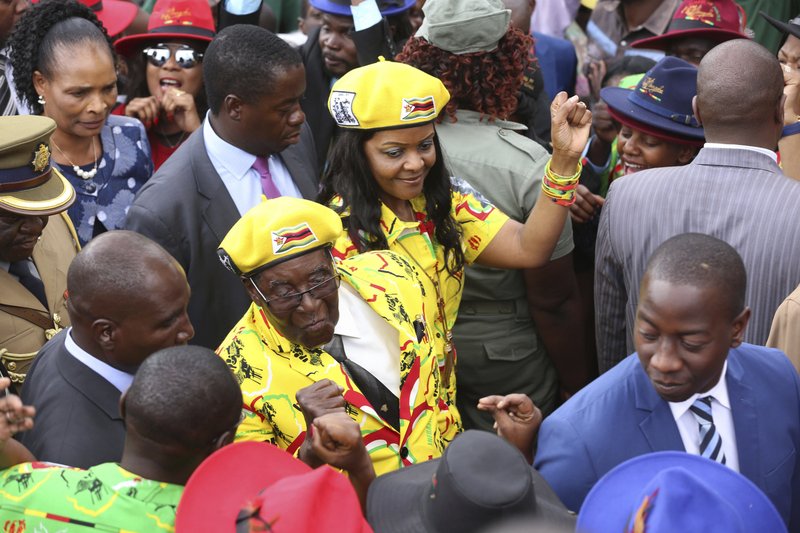HARARE, Zimbabwe — Zimbabwe President Robert Mugabe was shown meeting Thursday with the army commander who put him under house arrest, as negotiations with a South African delegation and a Catholic priest at the state house sought a resolution to the political turmoil and the likely end to Mugabe's decades-long rule.
The state-run Zimbabwe Herald newspaper published what it called new photos of the meeting, saying details were to come. One showed Mugabe and the army commander shaking hands. The photos did not show first lady Grace Mugabe, whose rapid political rise had alarmed many in the country who feared she could succeed her husband.
South Africa President Jacob Zuma, speaking in parliament, said the political situation "very shortly will be becoming clear."
Seizing on the political limbo to speak out, civil society groups and opposition leaders urged Mugabe to step aside after 37 years in power and for the country to transition into free and fair elections.
Mugabe has been in military custody, reportedly with his wife, since the army stepped in overnight Tuesday. There was no sign of former Vice President Emmerson Mnangagwa, whose firing last week angered supporters in the military amid concern that Grace Mugabe would take his place at a party meeting next month.
The military remained in the streets of Harare. Southern African regional officials were meeting in neighboring Botswana on the crisis.
A joint statement by more than 100 civil society groups urged the 93-year-old Mugabe, the world's oldest head of state, to peacefully step aside and asked the military to respect the constitution. A joint statement by churches also appealed for calm.
Opposition leaders spoke out but said they had not been contacted as part of the Mugabe negotiations.
Opposition leader Morgan Tsvangirai, who shared power with Mugabe between 2009 and 2013, said Mugabe must resign and said his party would participate in talks on a transitional mechanism if approached.
He pointedly referred to Mugabe as "Mister."
A vice president who was fired in 2014, Joice Mujuru, called for "free, fair and credible elections" after a transition arrangement that draws from a range of communities.
Zimbabwean Evan Mawarire, the pastor whose #ThisFlag social media campaign last year led to the largest anti-government protests in a decade, asked: "Should we just sit and wait or shall we at least be part of this transition process?"
Across the country, Zimbabweans long frustrated by crackdowns on dissent and a collapsing economy were enjoying freedoms they haven't had in years. For once, they weren't contending with bribe-seeking police officers who mounted roadblocks every few miles.
Soldiers manning the few checkpoints leading into downtown Harare greeted motorists with a smile, searching cars without hostilities and wishing motorists a safe journey.
Street vendors who endured police raids after Mugabe ordered their removal were working without hassles. Trade unions urged workers to go about their business.
"The situation is quite OK because they are now returning to their jobs," said one resident, Clinton Mandioper.
Human-rights groups urged respect for rights as the drama played out.
Amid questions about the whereabouts of first lady Grace Mugabe, one Namibian newspaper, the New Era, reported that the country's foreign minister denied she had fled there.
The U.S. Embassy advised citizens in Zimbabwe to "limit unnecessary movements" as political uncertainty continues. The British government also urged its citizens to avoid large gatherings and any demonstrations.
Read Friday's Arkansas Democrat-Gazette for full details.
